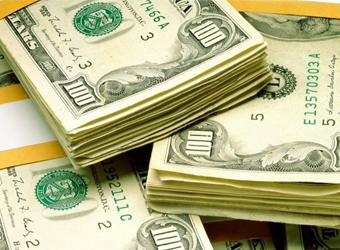Progress to overhaul the U.S. tax system and U.S. President Donald Trump’s choice to lead the Federal Reserve could be two major events that lead to weakness for the dollar, according to one currency expert.
“I think the USD will likely be impacted by a few key decisions in the near term. The next Fed chairperson and how much the person President Donald Trump nominates believes in the ‘low rates’ path is important,” Itay Tuchman, global head of forex trading at Citi, told CNBC via email.
One of the most mentioned names to replace Janet Yellen as chair of the Fed is Kevin Warsh, a former Fed member. He is perceived to be more hawkish policymaker — meaning that he would probably support a strong increase in interest rates for the country. However, some traders remain unconvinced.
“Our base case is that the new Fed chair appointee will not be an aggressive hawk,” Stephen Gallo, European head of forex strategy at Bank of Montreal, told CNBC via email.
“Once we remove the risk of a hawkish Fed chair appointee and once we see clear signs that the European Central Bank (ECB) is embarking on the quantitative easing (QE) taper, the stage will be set for more fundamentally-driven USD weakness over the medium-term,” Gallo added. Gallo believes that euro zone’s central bank could be about to tighten policy, thus strengthening the euro against the greenback.
Next Fed chair
Trump said in the last week of September that his choice for the next chair of the U.S. central bank would be announced “over the next two or three weeks.” Trump has also promised one of the biggest changes to the country’s tax system, reducing individual tax bands from seven to three.
Under his plans, corporate tax would also be reduced from 35 to 20 percent and there would be a repatriation tax to ensure that companies would be bringing offshore money back to the U.S.
Tuchman believes that what happens in the tax reform debate in Congress over the next one to two months will certainly have an impact on the dollar. “I am much more skeptical than most that something substantive enough to support a rising USD can get through a Republican congress, which seems to struggle to reach consensus at the moment,” he said.
Gallo added that on a medium-term basis he doesn’t see much strength on the U.S. dollar because “ultimately the tax cuts will cause the fiscal deficit to balloon.”
Also, a lower corporate tax rate would likely boost business investment, which could dent a recent runup in inflation given that firms might opt to invest in machinery and not increase wages, according to Gallo. This could therefore affect the Fed’s plans to tighten its policy, he said.
Gallo noted that the proposed repatriation tax would be a dollar-positive event if it passes as part of an overall package. “But the gains for the USD would only be temporary and they would not offset the medium-term downward trend in the USD,” Gallo added.
The U.S. dollar is 9 percent lower since the start of the year against a basket of major foreign currencies. The currency is currently trading at similar levels to those seen at the start of 2015.
Source: CNBC
